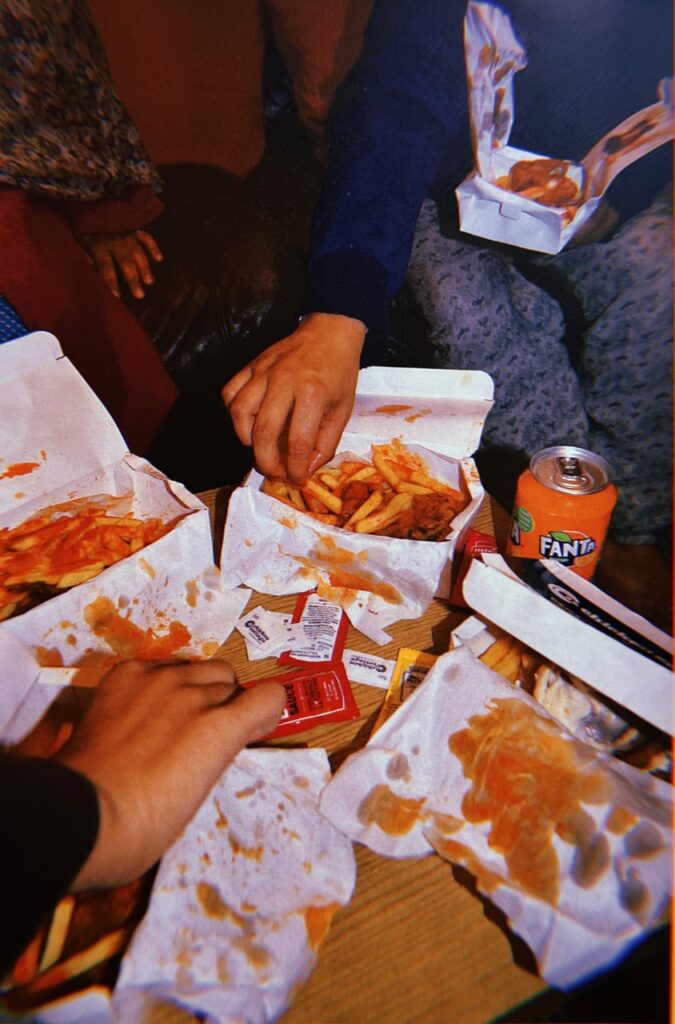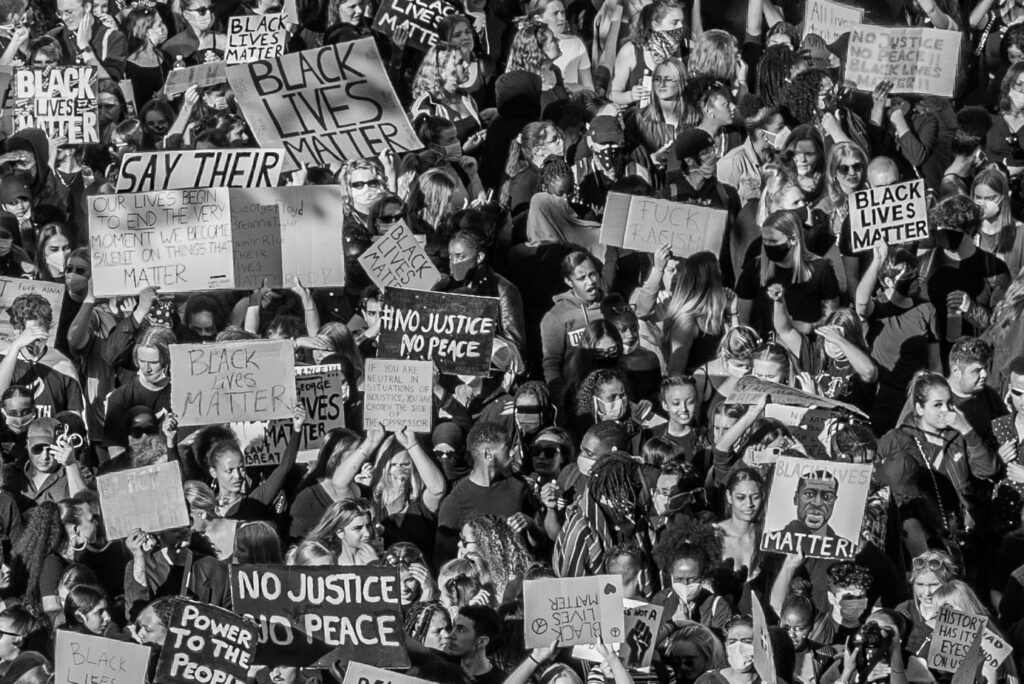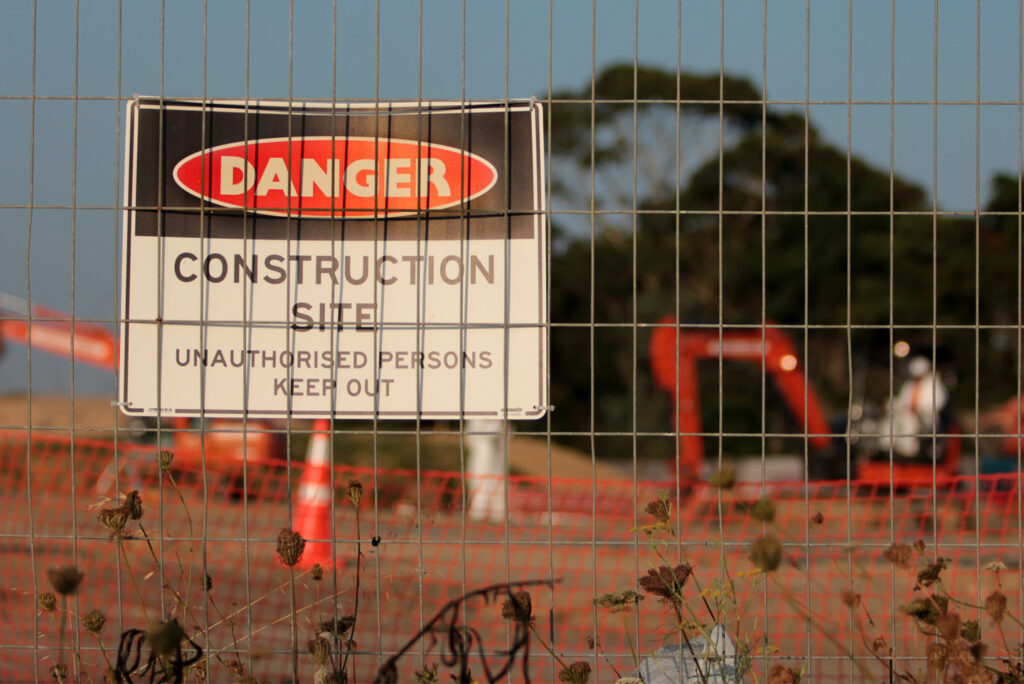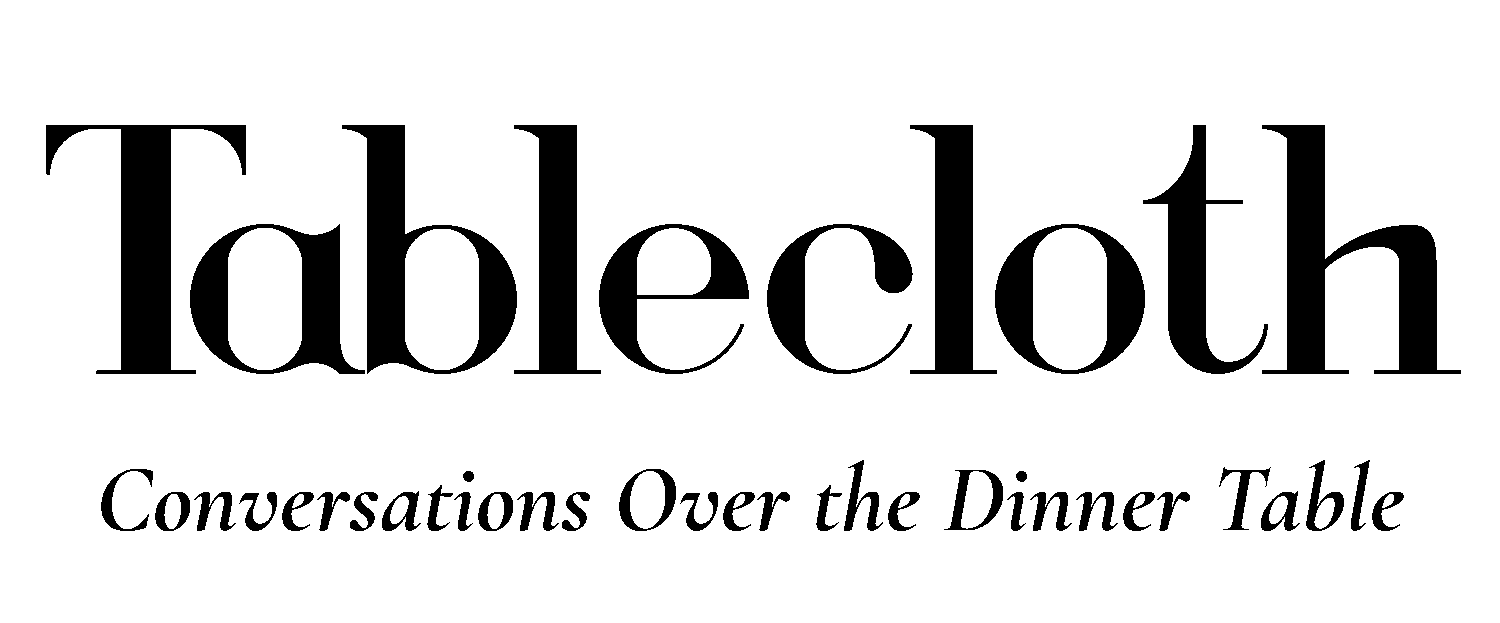Month: March 2023
Food is a global language that is present in practically every moment of our lives. It’s there to celebrate every milestone from life and death, love, and sorrow and is a comforting hand in the lives of humans. Food has always been an integral part of our existence, culture, and history.
Photo essay


Takeaway: A group of friends sharing a takeaway together on a Friday night.

While understanding different languages can be difficult and a barrier when engaging with others and new cultures, the language of food is a universally understood lingua franca. The presence of food goes far beyond just nourishing our physical bodies and minds, but it allows us to explore different cultures, memories and stories and allows people to connect with one another. We can have French pastries and Brazilian coffee for breakfast then an Indian curry or fresh Italian pasta for lunch and finish the day off with Singapore noodles and Victoria sponge cake for dessert.
This ease of convenience food is one of the ways we positively experience human travel and a globalised society to the extent that, in the UK, dishes that may once have seemed exotic are now part of our culture and everyday lives, with dishes like Chicken Tikka Masala being the National dish.
Food not only sustains our survival but, also acts as a foundation for various cultures to communicate. The simple act of sharing a meal and breaking bread with others whilst spending time around the dinner table. A meal can be the beginning of relationship, an activity that is used to catch up with your nearest and dearest or can be something people dread and have alone.
Whether it is sat on the floor or eating on your sofa each photo captures the different ways different people share and enjoy different meals. Forming new memories and exchanging old ones in return.

Lap tray: A couple eating a homemade dinner on a lap tray in front of the tv

Serving food : Rice being served whilst others chat and eat with their hands
Whilst working on this photo essay I really wanted to focus on the different dynamics that are created whilst sharing a meal with others. Through the images, I draw upon different experiences and perspectives from different people, keeping the overall look the same for cohesion and to show that although each meal is different, the act of sharing a meal is the same no matter how, where or who you experience it with .
All images, Ⓒ All the images have been taken and edited by Nazifa Miah
Through the Window and Arch
Come fast with me
Sipping World’s Coffees
Chop, chop… BOOM!
Immersing into art
Introduced in 2022, the Public Order Bill is set to destroy foundations of a democratic right to be heard. We reveal tips on protesting after the passing of the bill in early 2023

The Public Order Bill, that is still moving through Parliament, aims to introduce a series of measures that, detractors argue, intend to destroy the foundations of a democratic society. Aiming to take away our freedom to voice our opinions with noise restrictions and much more, consequently the purpose behind protesting. With a huge increase of protests over the years across the United Kingdom, the policy taken our right to be heard and silence criticism against the government.
If the bill should pass, police would have extended powers to impose conditions onto protests and protesters, stop and search anyone attending a protest (even without suspicion), restrict the amount of people who attend and even decide who can attend and now what you do online surrounding the protests.
Previous protests such as the Black Lives Matter movement in 2020 to more recent protests from ‘Just Stop Oil’ that utilise disruption in the form of blocking motorways, access to buildings, chaining themselves to each other or objects and noise disruption level to protest are now all being used as main targets under the new law.
Whilst this all makes it seem impossible to get your voice heard, here are seven things we’ve been chatting about over dinner…

One- For starters, if we are thinking about organising a protest, we’d better tell the police.
Though it is still legal to protest under the European Convention of Human Rights despite the U.K. leaving the EU.
The decision to notify the police beforehand means you can establish ground rules for the protest, you just make sure everyone follows them.
Two- We must know what conditions the police can impose on protests too
As well as being allowed to stop and search anyone attending a protest, the police are allowed to impose conditions onto the protest and protesters. Conditions include a restriction to location, the duration and the number of participants allowed to part-take and the time a protest can go on for.
three- There is also the thing about space…
You cannot protest on private property, without being considered trespassing and can be arrested for this, as well as aggravated trespassing. If you are now considered to be disrupting an organisation or two or more persons, the police would have powers to impose conditions (tip 2) onto your protest, fine protesters and even arrest organisers.
The current state of the bill identifies ‘tunnelling’ as protesting on any construction site. Under the new bill this will no longer be allowed, maybe due to health and safety reasons more than disruption.
Police would also prohibit protests in a specific area, and up to a five-mile radius, for up to three months but only if they believe that due to circumstances in the area, such as overcrowding during rush hour, conditions would be insufficient to prevent serious public disorder.
four- This is kind of silly but… the noise we make is also about to change
Though this is the main point of a protest, the bill doesn’t agree, and neither will the police. If they consider the noise to be of disruption to people or organisations nearby, you can be fined and arrested.
It is currently noted on GOV.UK that imposing conditions based on noise will vary. How long a protest goes on for and even if the buildings they are protesting in front of feature double-glazed architectural features that block out noise are all factors on what and if conditions can be imposed on your protest.
These rules also apply to static protests.
Controlled areas based on the noise disruption means that government is looking to restrict protests in or around Parliament.
Five- Penalties and imprisonment
As well as being fined up to £1,000 for failing to comply to a stop and search you could be fined £1,000 for participating in static, prohibited and trespassory protests, £2,500 for organising or inciting others to join into these protests and/or 3 months imprisonment.

Six- Legal observers may be a good idea
You can arrange for a legal observer to be present and monitor the police as well as protesters, to provide legal information and support to protesters. You can find access to legal observers through the Independent Legal Observer Network.
Legal observers may even be volunteer law student, surprisingly not everything comes with a price.

Seven- Know who can support you!
Whilst being able to afford a legal observer may only be for larger organisations, it is helpful to know where you can access support. Across the U.K. there are many solicitors that offer 24/7 support in London. These include:
Commons Legal: 020 3865 5403 ITN Solicitors: 020 3909 8100 Hodge Jones & Allen: 0844 848 0222 Bindmans: 020 7305 5638
Link to the government website bill
All images, Ⓒ unsplash.
